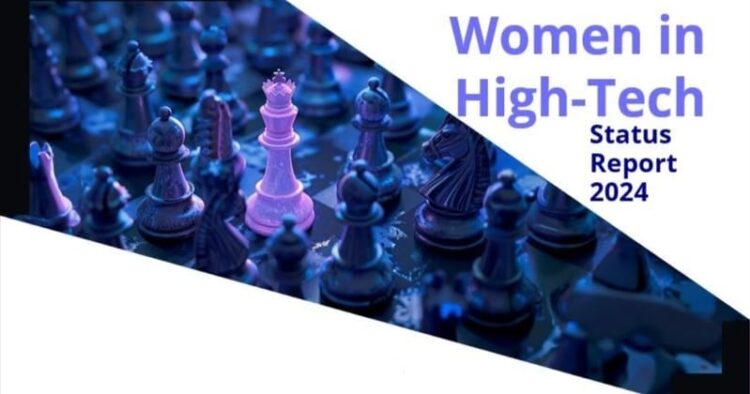The tech landscape in Israel has witnessed a surge in women’s participation in research and development (R&D) positions over the past decade, but gender parity remains elusive within the industry, with women occupying only a third of all high-tech positions, according to a report released on March 7.
The report was released by the Israel Innovation Authority in collaboration with the Aaron Institute for Economic Policy at Reichman University ahead of International Women’s Day.
“The tech sector has been at the forefront of the Israeli economy for many years, but there is still a way to go regarding gender equality. We see more women in core roles, but the growth rate is insufficient to reach gender parity goals,” said Innovation Authority CEO Dror Bin.
“In 2023, about 3,500 positions were added for women in tech compared to about 6,700 positions for men. To bring about change, there must be a concerted long-term effort by the tech industry and relevant Government entities to continue breaking the glass ceiling for women earlier in their career.”
The report found that almost 40 per cent of women currently employed in the tech industry are engaged in R&D roles, marking a staggering 130 per cent increase since 2013. This upward trajectory reflects a consistent annual growth rate of 2.7 per cent, in line with that of men.
However, women still only occupy a third of all high-tech positions, falling short of the 43 per cent target set by the National High-Tech Human Capital Committee for 2035. This gap is particularly pronounced for non-Orthodox Jewish women, with approximately 80,000 positions needed to meet the designated target.
Moreover, the proportion of women in administrative and business development roles has decreased from 50.7 per cent in 2014 to 41.4 per cent in 2024, demonstrating an 18 per cent decline in the last decade.
“From the research data, it is evident that gender gaps in tech positions and the tech industry’s R&D positions are not a result of differences in ability or achievements between men and women, but rather stem from different choices made by them at various stages of the education system,” said Dr Sergei Sumkin, a senior researcher at the Aaron Institute.
“Access to tech studies should be provided to every student in Israel within the school framework or excellence centers. Additionally, attention should be paid to the professional explanation by the school staff regarding the contribution of tech skills to quality employment for female students,” Dr Sergei Sumkin added.
(with inputs from ANI)




















Comments